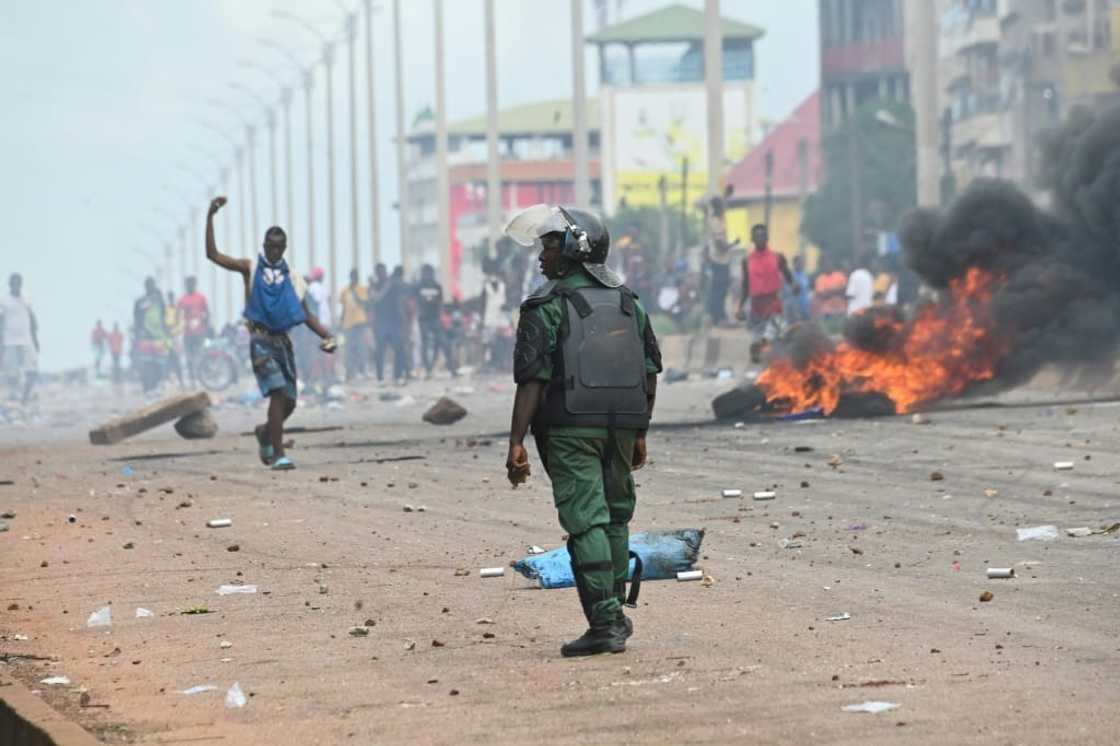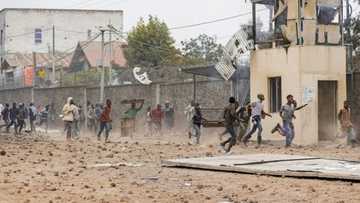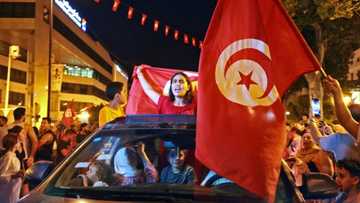Anti-junta protests paralyse Guinea capital

Source: AFP
New feature: Check out news exactly for YOU ➡️ find “Recommended for you” block and enjoy!
Protests against Guinea's ruling junta held in defiance of a protest ban brought the capital Conakry to a standstill Wednesday, with clashes breaking out in some neighbourhoods.
The National Front for the Defence of the Constitution (FNDC), an influential coalition of political parties, trade unions and civil society organisations, called the demonstrations to denounce the junta's "contempt and arrogance" and "unilateral management" of any return to civilian rule.
It accused the military leaders, who seized power in a coup in September last year, of "systematically refusing" to establish a "credible dialogue" to define the terms of the transition.
The former ruling Rally for the Guinean People (RPG) and the National Alliance for Change and Democracy (ANAD), another coalition of parties and associations, then called on their supporters to join the demonstrations.
Clashes broke out Thursday morning between young demonstrators and the police in several so-called opposition areas of the capital, an AFP reporter said.
Protestors erected barricades and burned tyres while police fired tear gas to disperse small groups throwing stones.
PAY ATTENTION: Follow Briefly News on Twitter and never miss the hottest topics! Find us at @brieflyza!
Most parts of the city centre remained calm, but activity nonetheless ground to a halt.
The Boulevard du Commerce, a major roadway usually full of people, was almost deserted by midday.
"We are delighted with the success of our call to demonstrate -- it was perfect," Ibrahima Diallo, the FNDC's head of operations, told AFP.
"The city has been quiet everywhere, the administration is paralysed -- it's been a great success for us."
'Authoritarian conduct'
Colonel Mamady Doumbouya, who overthrew President Alpha Conde last year, has pledged to hand over power to elected civilians within three years. But regional powers have rejected this timeline.
The junta in May banned any public demonstrations that could be construed as threatening public order.
The FNDC had announced protests for June 23 but later called them off, indicating they were prepared to give the transitional government a "chance" and start dialogue.
But their patience snapped after a meeting with the authorities that the FNDC slammed as a "parody".
It denounced the "solitary and authoritarian conduct of the transition" and its "serious attacks on fundamental rights and freedoms".
Three FNDC leaders were arrested on July 5, provoking violent demonstrations that were some of the first since the junta seized power.
All three were released after being found not guilty of contempt of court over comments they had posted on social media criticising the prosecutor's office and the military-appointed parliament.
New feature: check out news exactly for YOU ➡️ find "Recommended for you" block and enjoy!
Source: AFP



